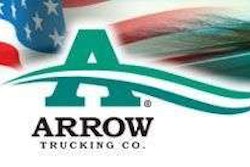Company You Keep
Richard Carrier Trucking employs its fleet to deliver its own and customer products and meet strict deadlines
Richard Carrier Trucking President Jimmy Carrier sets parameters for what he expects out of his trucks and his managers. He regards his trucking fleet as a tool for providing dependable customer service.
“Trucking is not primarily our business,” Carrier says. “We buy and sell our products, and the only way to move our product is in our own trucks, because we can’t depend on everybody else.”
Based in Skowhegan, Maine, RCT specializes in hauling wood products primarily in the Northeast, both from its own plants in Maine and New Hampshire and from client facilities. The company’s products include mulch that it distributes to landscapers and retail outlets and wood fuel it delivers to boiler plants that generate electricity in Maine and Canada. “In our facility here we probably go through 80,000 to 160,000 tons of wood by-products a year that we buy and sell and remanufacture,” Carrier says. “We stockpile it, and when there’s a shortage of it, that’s when [our customers] utilize us.”
RCT plants include a 25,000-square-foot maintenance building on 40 acres in Maine and a similar size New Hampshire facility. RCT also operates a pallet plant and separate saw mills for soft and hard woods. “We have one customer that has a mill that produces 15 to 20 loads of [wood] chips a day, and they have a bin that holds only two loads,” Carrier says. “Our trucks have to be there every hour on the hour to keep their bin clean. That’s the service we give.”
RCT hasn’t always been in the business of making wood by-products. Founded in 1974, the company began hauling lumber out of the Maine woods. That led to transporting mill by-products, then finished wood.
As the company grew, it added box trailers, flatbeds — “every kind of trailer you could think of,” says Carrier, 38, who’s been working in the business since he was 12 years old. Today, the company owns 160 trailers.
RCT also does business in Canada, where it functions more as a trucking company, specializing as an oversize carrier, transporting for example sections as large as 50 feet by 44 feet by 25 feet for a cruise ship manufacturer. It also hauled 125-foot long beams to a construction project at JFK International Airport in New York.
RCT’s fleet numbers 69 tractors in Maine and 46 trucks and 30 tractors at two fleets in Canada. All of the power units are Western Stars in the 4900 Series, first bought by the company in 1992. The oldest is 1998, while 2001, 2002 and 2003 models have recently been refurbished, equipped with new components and put back on the road. “With the new technology, we wanted to hold back and see what it was going to do,” Carrier says.
The Western Star’s durability and pulling power have impressed Carrier for years. RCT’s trucks are mostly equipped with Detroit Diesel Series 60 engines ranging from 450-525 hp.
“Western Star looks like a real machine — it is a mean-looking truck as it goes down the road,” Carrier says. “Yet the inside is comfortable and quiet.”
The trucks include specs matched to logging, such as tridem-drive rear axles, custom tow hitches, pintel hook mounting braces, supersized radiators and heavy-duty suspensions. The company has also enhanced the safety of its fleet by adding additional mirrors and headboards.
“Visibility is very important to our drivers deep in the woods at a sawmill or chipping plant, and they really need to know what’s going on around them at all times,” Carrier says.
The weakened economy forced RCT to shut down its flatbed operation and get rid of 21 trucks. Some customers wanted the company to haul at a lower rate, which Carrier refused to do. “We figure we make as much with 69 trucks [in the U.S.] as we did with 80 trucks before,” says Carrier, even though revenue is 25-30 percent down.
“We have our parameters where the truck has to make a little bit of money. If they don’t make money, we park them,” he says.








